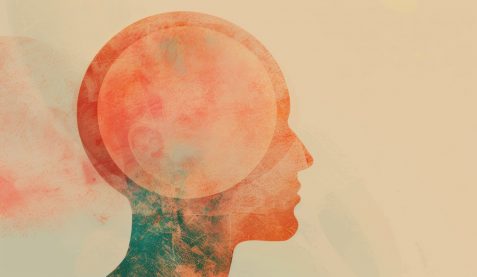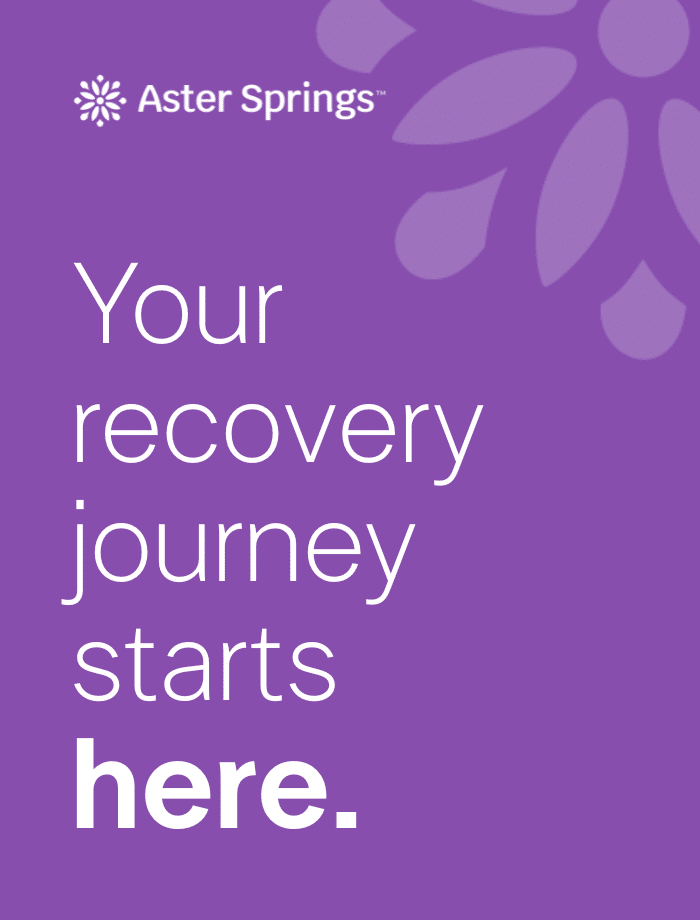Eating disorders and depression are each complex, life-altering conditions. When they occur together, the experience can feel overwhelming. Yet even in the midst of that struggle, there is hope. Both disorders are treatable, and integrated care can be profoundly life-changing for those who receive it.
Many people are surprised to learn just how common it is to experience eating disorders and depression at the same time. Their symptoms often overlap, and one condition can easily intensify the other. Understanding how they’re connected — and how recovery can address both — is an essential step toward healing.
Co-Occurring Conditions + Eating Disorders
When someone experiences two or more mental-health conditions at the same time, it’s called a co-occurring condition (sometimes referred to as comorbidity). For individuals with eating disorders, co-occurring conditions are the rule, not the exception.
Research shows that about 80% of individuals with eating disorders also experience another mental health disorder, such as depression, anxiety, obsessive-compulsive disorder (OCD), post-traumatic stress disorder (PTSD), or substance use disorder (SUD).¹
Among these, depression is the most common. Studies have found that up to 50–70% of individuals with anorexia nervosa and 50–65% of those with bulimia nervosa also meet criteria for major depressive disorder.¹
This overlap is not coincidental. Depression and eating disorders share many of the same risk factors and psychological vulnerabilities — and when they coexist, each can make the other more severe.
Why Depression + Eating Disorders Often Co-Occur
Depression doesn’t directly cause eating disorders. Conversely, eating disorders don’t always cause depression. However, both conditions stem from interconnected biological, psychological, and environmental influences.
Shared Risk Factors
Genetics – Studies have identified genetic traits that increase susceptibility to both depression and eating disorders. Certain inherited factors linked to mood regulation and appetite control can heighten the risk for both conditions.
Environmental stressors – Trauma, family conflict, bullying, and social pressure around weight and appearance can increase vulnerability to both.²
Personality traits – Traits like perfectionism, emotional sensitivity, and difficulty managing emotions are common in both disorders.³ Low self-esteem and harsh self-criticism — core features of depression — often overlap with negative body image and disordered eating.
Both disorders also share a deep emotional root: a sense of inadequacy or loss of control. When life feels unmanageable, food and the body can become a focus for regaining stability. But that temporary sense of control soon turns into a trap — one that reinforces feelings of shame, hopelessness, and self-blame.
Overlapping Symptoms
Depression and eating disorders share numerous emotional and physical symptoms, including:
Low self-esteem and self-criticism
Negative or distorted body image
Appetite changes and weight fluctuations
Fatigue and loss of energy
Feelings of guilt or worthlessness
Hopelessness and despair
Social withdrawal and loneliness
Difficulty concentrating
Suicidal thoughts or behaviors²
These overlapping symptoms can make diagnosis difficult. A person may initially seek help for fatigue or changes in appetite, not realizing that both disorders are contributing. Comprehensive assessment by an experienced mental-health provider is crucial to identify the full picture and develop an effective treatment plan.
How Eating Disorders + Depression Influence Each Other
The relationship between these two disorders is cyclical. Each one feeds into — and is worsened by — the other.
How Depression Can Contribute to Eating Disorders
Depression often brings feelings of hopelessness, emptiness, and loss of control. Some people begin to restrict food intake or overeat as a way to cope or to regain a sense of mastery over their emotions. Others may use food as comfort or punishment. Over time, these behaviors can evolve into a diagnosable eating disorder.
Depressive symptoms such as fatigue, anhedonia (the loss of pleasure), and social withdrawal also make it harder to maintain balanced eating habits or reach out for help.
How Eating Disorders Can Worsen Depression
The psychological and physical toll of eating disorders intensifies depressive symptoms. Malnutrition, dehydration, and vitamin deficiencies directly impact brain chemistry, making mood regulation even harder.⁴ Restrictive eating can deplete serotonin and dopamine — neurotransmitters essential for emotional balance — while binge-purge cycles can heighten shame and self-loathing.
The more entrenched disordered eating becomes, the more it fuels feelings of guilt, hopelessness, and isolation. In this way, eating disorders and depression form a self-perpetuating loop — each reinforcing the other until both feel inescapable.
The Importance of Integrated Treatment
When eating disorders and depression occur together, treating one without the other rarely leads to full recovery. Integrated treatment — care that addresses both conditions simultaneously — provides the best outcomes.
A Holistic Approach
Integrated programs focus on the interconnection between physical, emotional, and psychological health. This means:
Restoring nutritional stability and physical health
Treating underlying depression through therapy and, when appropriate, medication
Identifying and changing the thought patterns that fuel both disorders
Teaching emotion-regulation and coping skills
Involving family or support systems when possible
The same therapeutic approaches proven effective for eating disorders also help reduce depressive symptoms.
Evidence-Based Therapies
Cognitive behavioral therapy (CBT) – CBT helps individuals recognize and challenge distorted thoughts about food, weight, and self-worth while learning to replace them with balanced, realistic perspectives. It’s considered a first-line treatment for both depression and eating disorders.
Dialectical behavior therapy (DBT) – DBT builds emotional regulation and distress-tolerance skills, which are critical for managing impulsivity and negative mood.
Medication support – Antidepressants — particularly selective serotonin reuptake inhibitors (SSRIs) — are sometimes prescribed to help relieve depressive symptoms and support emotional stabilization.
In severe cases, medical stabilization may be the first step. Once the body is nourished and medically safe, psychotherapy and nutritional counseling can begin in earnest.
Recovery + Hope
Recovering from co-occurring eating disorders and depression takes patience, courage, and consistent professional support — and full recovery is absolutely possible. With integrated, evidence-based treatment, many people experience profound improvements in mood, physical health, and overall quality of life.
Healing often begins with a single moment of courage: recognizing the problem and reaching out for help. Seeking treatment is not a sign of weakness — it is an act of self-preservation and the start of rebuilding trust in your body and yourself.
Specialized programs, including residential, PHP, and IOP levels of care, provide the structure, clinical expertise, and compassionate environment needed to address both conditions simultaneously. In these settings, individuals learn not only to nourish their bodies, but also to reconnect with meaning, joy, and a sense of belonging.
Recovery is rarely linear, but it leads somewhere deeply meaningful — toward a life where food is no longer a source of fear, emotions feel manageable, and hope replaces shame.
Start Your Recovery Journey with Aster Springs
If you or someone you love is struggling with an eating disorder and depression, Aster Springs is here to help. Our expert clinical team provides individualized, evidence-based treatment designed to support long-term healing and emotional stability.
Reach out to our compassionate admissions team today to learn more about our programs and take the first step toward reclaiming a life grounded in balance, confidence, and hope.
References
Comorbidities in eating disorders. (2021, March 22). Psychiatry & Psychopharmacology.
Gillette, H. (2024, January 22). What’s the relationship between anorexia and depression? Healthline.
Sander, J., Moessner, M., & Bauer, S. (2021). Depression, anxiety, and eating disorder-related impairment: Moderators in female adolescents and young adults. International Journal of Environmental Research and Public Health, 18(5), 2779.
The Bulimia Project. (2023, May 16). Bulimia & co-occurring depression.


